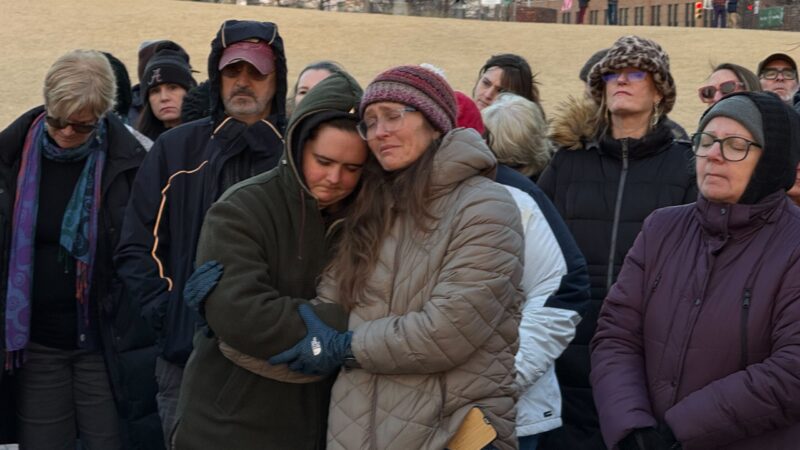Hungarians declare resistance to Orbán’s government with a large protest
BUDAPEST, Hungary — Around 15,000 protesters filled a square in Hungary’s capital Tuesday in what organizers called the beginning of a resistance movement against the government of populist Prime Minister Viktor Orbán.
Nearly two dozen public figures including writers, actors, musicians and journalists joined the demonstration in Budapest. Most of the speakers criticized what they see as the government’s increasingly anti-democratic conduct. Some alleged corruption benefiting those with ties to Orbán’s Fidesz party.
“This country doesn’t belong to those who lie, who rob from the people, who have sold their humanity for power,” said one speaker, Csaba Bogos. “This country belongs to those who dare to think, who can read between the lines, who trust in themselves and each other, and believe that there is a common, peaceful future that we must build together.”
It was the latest anti-government protest since Orbán’s party pushed through a law in March, and a constitutional amendment the following month, that effectively banned public LGBTQ+ events.
That law also allowed for authorities to use facial recognition technology to identify and fine participants in prohibited assemblies. It drew allegations that Orbán was leading the country toward a full autocracy similar to Russia under President Vladimir Putin.
As national elections approach in 2026 and Orbán’s party trails in most polls to a new opposition challenger, the Hungarian leader’s detractors say he has turned to more authoritarian tactics to silence critics.
Speakers at Tuesday’s demonstration warned that a recent draft bill that would allow the government to blacklist critical media organizations and NGOs would mean the end of independent journalism and civic engagement.
That bill would allow the government to monitor, restrict, penalize and potentially ban organizations it deems a threat to Hungary’s national sovereignty. Its passage was recently delayed until parliament’s autumn session.
Some 80 leading news outlets across Europe signed a petition urging the bill to be revoked, and the European Union’s executive committee said it would breach EU laws and fundamental values.
Demonstrator Dániel Szabó said the law was not aimed at protecting Hungary’s sovereignty, but designed to consolidate power for the governing party.
“We clearly have the situation where the government is trying to silence the opposition,” Szabó said. “The possibility for any kind of normal coexistence or the possibility for consensus is attacked now from every direction.”
Dénes Sallai, a popular musician and rapper, told the crowd he sees signs that longtime support for Orbán and his party was waning.
“The majority of people are fed up with the actions of this regime, and there appears to be a real chance that next year, after 16 years, Fidesz won’t be the one to form a government,” he said.
Venezuela announces amnesty bill that could lead to release of political prisoners
Venezuela's acting President Delcy Rodríguez on Friday announced an amnesty bill that could lead to the release of hundreds of prisoners detained for political reasons.
DHS keeps making false claims about people. It’s part of a broader pattern
Trump administration officials have falsely linked Alex Pretti and Renee Macklin Good to domestic terrorism. It's part of a larger pattern by the Department of Homeland Security.
Birmingham faith leaders lead community in vigil in response to ICE actions in Minnesota
Members of the Birmingham community bore the cold Friday evening in a two-hour vigil in honor of Alex Pretti, who was shot and killed by federal immigration agents last weekend in Minnesota, and others who have died in incidents involving United States Immigration and Customs Enforcement.
‘Melania’ is Amazon’s airbrushed and astronomically pricey portrait of the First Lady
Amazon paid $40 million to acquire the documentary, and is spending $35 million more to promote it.
Photos: Thousands once again protest ICE in Minneapolis and across the U.S.
Demonstrators in Minneapolis and other U.S. cities participated in protests as part of a "national shutdown" to end immigration enforcement operations.
Judge rules Luigi Mangione should not face death penalty
A federal judge dropped two of the charges against Luigi Mangione — the man accused of fatally shooting UnitedHealthcare CEO Brian Thompson — making his case no longer eligible for the death penalty.







